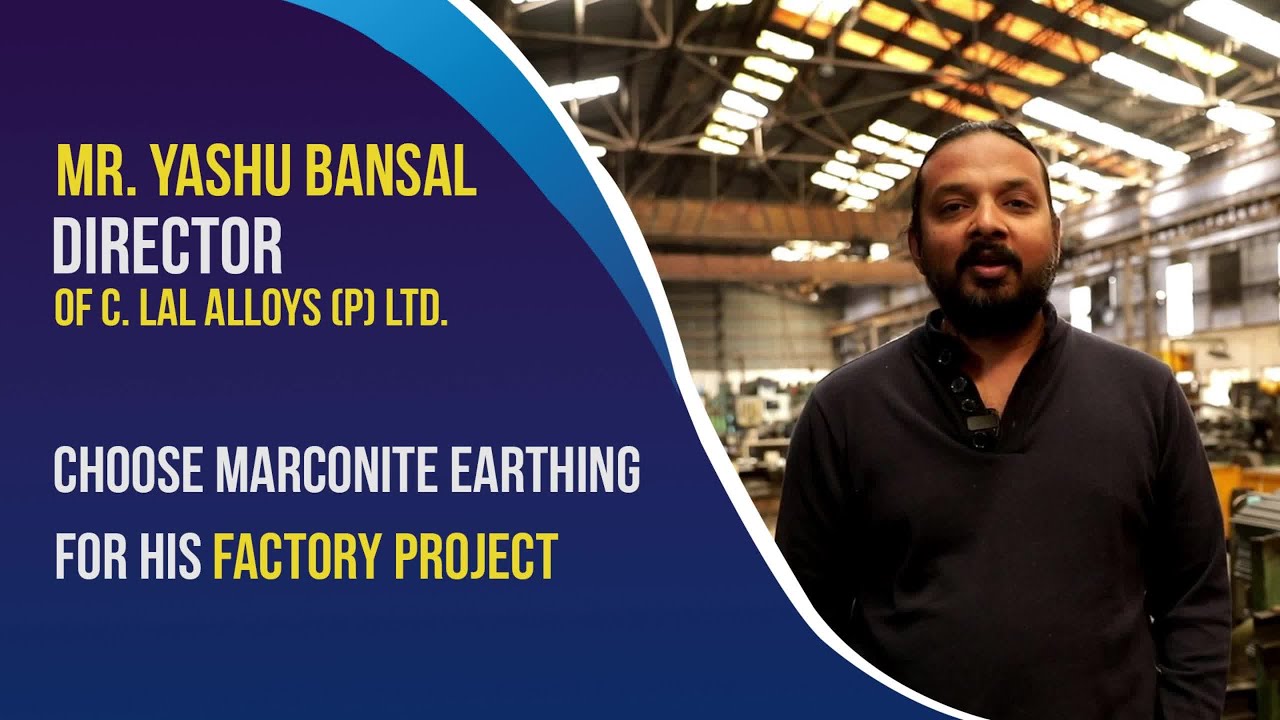The electrical earthing or grounding system is the heart of any Industrial Electrical Equipment Installation. The safety of the people working and equipment in use is critical as effective earthing allows excess current to flow to earth, preventing personal injury and failure of the electrical equipment connected to it.
Why Electrical Earthing for a factory or an industry is important?

- To provide the grounding of all conductive enclosures such as machines, electronic equipment, testing equipment, motors or any other electrical equipment that may be touched by personnel, thereby eliminating shock hazards that may lead to human fatalities.
- To provide a safe, low-resistance path for fault currents to flow into the ground, preventing electric shocks to workers who may come into contact with exposed metal parts of machines or equipment. This is vital in industrial environments where large, powerful machines and high voltages are common.
- To reduce static electricity that may be generated within Industrial facilities.
- To protect from large electrical disturbances such as electrical surges, fault currents, lightning, etc. by creating a low resistive path to earth.
The principal purpose of earthing is to minimize potential transient overvoltage, in compliance with standards for personnel safety requirements and to assist in the rapid detection and isolation of the fault areas.
Why Soil Test is Important Before Electrical Earthing is Carried Out?
Earth behaves as an Electrical conductor, but its characteristic is that its conductivity is variable and unpredictable. The resistance of an earth connection varies with the earth’s composition, chemical contents, moisture, temperature, the season of the year, depth and diameter of the rod and other reasons.
The soil testing and earthing audit report may consist of :
- Measured data at the site
- Anomalies and Defects Observed
- Recommendations for rectification and
- Site Photographs
Top 10 Factors on Which Earth Resistance Depends?
- Type of soil
- Temperature of soil
- Wetness of soil
- Minerals in Earth
- Shape of earth electrode
- Size of earth electrode
- Depth of electrode in earth
- Diameter of earth electrode
- Number of ground electrodes
- Distance between two earth electrodes
What is the most effective electrical earthing for an Industry? 
There are several types of earthing systems used in industries, each with its own characteristics and benefits. Let us understand the different types of electrical earthing systems available:
Conventional Earthing:
Conventional earthing is a traditional method where a large pit is dug, and a copper plate or a GI pipe is placed in the middle layers of salt and charcoal. This type of earthing requires regular pouring of water and maintenance at regular intervals.
A copper or GI wire connects the electrode to the electrical system, forming a low-resistance path for any excess or fault current. When an electrical fault occurs, the current flows through the electrode and safely disperses into the ground, protecting people and equipment from electric shock, overvoltage, and lightning strikes.
Chemical Earthing:
Chemical earthing involves the use of a compound such as Bentonite or graphite-based chemicals. These compounds are mixed with the soil to improve its condition and reduce soil resistivity. The main disadvantage of chemical earthing is that the chemicals used for earthing leeches through the earth thus pollute the underground water bodies and the soil beneath. This type of earthing system also requires regular maintenance. Also, Certain chemical compounds used in chemical earthing may not be compatible with specific soil conditions.
Why Marconite Earthing is considered best for any Industrial Setup:
Marconite earthing is a 5th generation modern and the most effective earthing system. It utilizes Marconite conductive aggregate, as an alternative to sand and other traditional aggregate materials used in cement mixers. Marconite earthing works most effectively in various soil conditions and helps engineers achieve low-resistance and permanent earthing solutions.
Marconite earthing is designed to address different soil conditions and is widely used worldwide due to its long 50+ Years of life. Introduced in India by InterTech in 2011, Marconite earthing is the world’s best & maintenance-free earthing solution that provides stability and reliability even in challenging ground conditions such as rocky soil, deserts, mountains, wet soil, etc.
With over 80,000 earthing installations, Marconite is becoming the best choice for engineers, electrical contractors and architects in India.
In conclusion, industries can not only save on the maintenance of their equipment & machinery by eliminating a crucial factor i.e; faulty earthing but also avoid the risk of electrical shocks to the manpower by using the World’s Best Electrical Earthing – Marconite Earthing System.








